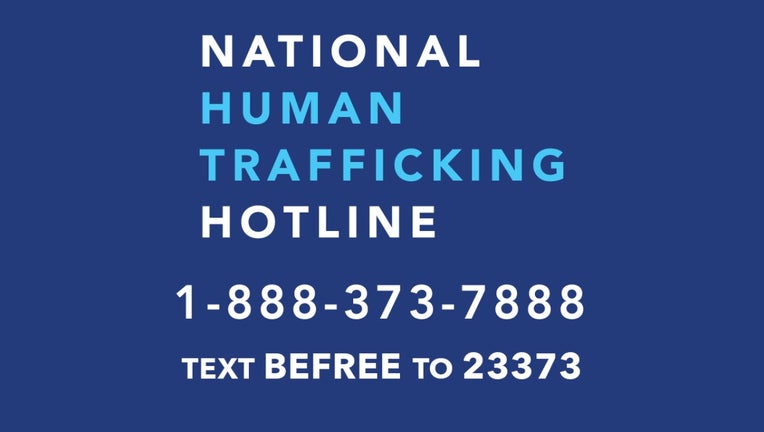National Human Trafficking Hotline

Human trafficking affects individuals across the world, including here in the United States and is regarded as one of the most pressing human rights issues of our time. Human trafficking affects every community across age, gender, ethnicity, and socio-economic backgrounds.
The National Human Trafficking Hotline connects victims and survivors of sex and labor trafficking with services and supports to get help and stay safe. The National Hotline also receives tips about potential situations of sex and labor trafficking and facilitates reporting that information to the appropriate authorities in certain cases.
The toll-free phone and SMS text lines and live online chat function are available 24 hours a day, 7 days a week, 365 days a year. Help is available in English or Spanish, or in more than 200 additional languages through an on-call interpreter.
Hearing and speech-impaired individuals can contact the Hotline by dialing 711, the free national access number that connects to Telecommunications Relay Services (TRS).
The National Hotline serves all individuals who reach out for our services regardless of race, ethnicity, gender, gender identity, age, religion, national origin, sexual orientation, disability, or any other factor protected by local, state, or federal law.
Correspondence with the National Hotline is confidential and you may request assistance or report a tip anonymously.
Trained Anti-Trafficking Hotline Advocates and supervisory staff provide assistance to victims in crisis through safety planning, emotional support and/or immediate connections to emergency services through our network of trained service providers and law enforcement partners. The staff is focused on supporting victims and survivors and is unfortunately not available to assist in research or respond to general questions about human trafficking.
The process begins with a careful trafficking assessment to determine possible next steps. These might include but are not necessarily limited to:
Follow-up call with the caller for additional information or to coordinate next steps (with caller's consent);
Report to our designated law enforcement partners for investigation;
Coordinate with law enforcement and/or service provider partners for emergency assistance; and/or
Referral or live transfer to our service provider partners to ensure victim service needs are met.
The National Hotline supports victims’ right to choose what those next steps might be, including whether or not to access services or report information to law enforcement. Except in situations involving potential abuse of a minor or if we believe a person is in imminent danger, the National Hotline will not take action without the consent of the person in the situation.
Frequently requested service referrals include case management, shelter, transportation, legal services, mental health and counseling services, and much more. Referrals and assistance are available to all survivors of human trafficking regardless of whether or not the need is urgent.
Human trafficking is a form of modern-day slavery in which traffickers use force, fraud, or coercion to control victims for the purpose of engaging in commercial sex acts or labor services against his/her will.
Sex trafficking has been found in a wide variety of venues within the sex industry, including residential brothels, escort services, fake massage businesses, strip clubs, and street prostitution.
Labor trafficking has been found in diverse labor settings including, domestic work, small businesses, large farms, and factories.

